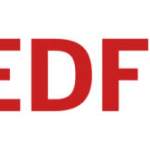(Restoration Of America) His is hardly a household name. Yet Reid Hoffman, best known for co-founding the professional networking site LinkedIn, has rapidly become one of the Left’s top patrons of political activism to rival George Soros, Bill Gates, and eBay’s Pierre Omidyar. Since 2016, this mega-donor has poured hundreds of millions of dollars into Democratic campaigns, leftist advocacy groups, and efforts to indict President Trump, with much more to come in 2024.
And that’s to say nothing of his ties to notorious pedophile Jeffrey Epstein.
Hoffman is no “moderate” content with defeating the former president. His primary funding vehicle, Investing in US, exists to spur “massive voter turnout” for Democrats to defeat the Republican Party’s—not Donald Trump’s—“white nationalist fascism,” likening all conservatives to “authoritarian criminals such as Hugo Chavez and Vladimir Putin . . . [for] actively undermining the legitimacy of our free press, our courts, our elections, and our scientific institutions.”
All Republicans, Hoffman’s group alleges, “have systematically and asymmetrically engaged in dirty tricks and brutal hardball to seize and hold power”—so he’s committed a fortune to wiping them out at the polls, meddling in the 2024 Republican primary, and playing dirty himself.
Dot Com Fortune
Like so many in Silicon Valley, Reid Hoffman’s career started in 1994 with Apple Computer, working on the company’s then-cutting edge online subscription service, eWorld, which offered users email, news, and internet chat rooms (later purchased by America Online). Three years later, Hoffman launched an online dating site—SocialNet.com—which, though it flopped, got him a director position with a new start-up: PayPal, which launched in 1999 under the leadership of Elon Musk, Peter Thiel as CEO, and Hoffman as executive vice president responsible for external relationships and business development. (Notably, Thiel and Hoffman’s friendship broke down years later over their differing views of Donald Trump.)
Around the same time PayPal was acquired in 2002 by Pierre Omidyar’s rising online giant, eBay, Hoffman launched his own e-company (with capital from Thiel and venture capital firm Greylock Partners): San Francisco-based LinkedIn, today the top social networking site for professionals with some 774 million members across 200 countries. But it was LinkedIn’s 2011 IPO that made Hoffman a billionaire (net worth: $2.2 billion as of writing); five years later, Microsoft purchased the company for $26.2 billion and added Hoffman to its board of directors.
Since 2009, Hoffman’s been an active partner at Greylock, one of the oldest venture capital firms in America with a reported $3.5 billion under management focused on tech (Dropbox), crypto software (Coinbase), and consumer services (AirBnB).

One of Hoffman’s most famous investments was Facebook (now Meta), which he helped launch in 2004 after arranging a meeting between Mark Zuckerberg and Peter Thiel, who also contributed $500,000 to the fledgling social media company. Hoffman reportedly mentored the younger Zuckerberg; today he sits on the board of the Chan Zuckerberg Biohub, which funnels money from its $600 million endowment to California university medical research centers.
Across this entire period, Hoffman wasn’t known as a prolific donor in political circles, gifting just $288,000 from 2002 to 2015 to then-President Barack Obama, Sen. Cory Booker (NJ), and multiple state Democratic parties.
Yet from 2012 to 2014 he dumped $2 million into two committees: Priorities USA Action, a top Democratic PAC that spent $28 million in the 2022 midterms, and Mayday PAC, founded by leftist campaign finance “reformer” Lawrence Lessig to elect Democrats who promised to be “tough” on money-in-politics. Lessig, who briefly ran for the Democratic nomination in 2015, also sits on the advisory board of the Sunlight Foundation, which coined the term “dark money” in 2010 to bash conservative political spending.
Compared with mega-donors like Tom Steyer, that’s a pittance. Then Donald Trump defeated Hillary Clinton in the 2016 presidential election—and everything changed.
Trump Derangement Syndrome
In September 2016, Hoffman was having a laugh at Trump’s prospects against Clinton. “Donald Trump [has] turned the Republican primary debates into an endless Friars Club Roast,” Hoffman wrote in his personal blog on the website Medium, which to that point had been confined to pontificating about business strategy. That post launched “Trumped Up Cards: The World’s Biggest Deck,” a multiplayer card game “where players need really big hands to win”—sold for $20.16. Hoffman was cheerful that Clinton would trounce the political upstart, writing:

At the same time, Hoffman pledged to donate $5 million to veterans groups if Trump released his tax returns before the first October presidential debate. “Because of how often Donald Trump’s decisions as president could potentially impact his business interests,” Hoffman wrote, “it has in fact never been more necessary for a candidate to release tax returns than it is for him.”
Less than one month later, Hoffman was worried about Trump’s prospects in the coming election. “This Election Day: What’s the worst that could happen?” he posted, with a political cartoon warning of the fallout from a Trump victory: A reporter silenced, protesters quashed, a loaded gun, drowning polar bears, Mexico sealed off by a massive wall, Wall Street in freefall, and women’s “glass ceiling” turned into an impenetrable roof.
By Halloween, Hoffman was imagining Trump dressed up as a witch (“because he conjures conspiracy theories to undermine society”), a werewolf (“because of his late-night howling on Twitter”), and other monsters.

Then the unthinkable sent Hoffman—and the rest of Silicon Valley—reeling. In December, Hoffman pledged to “defend” the Constitution by contributing $10 from every sale of Trumped Up Cards—now the symbol of the Left’s “resistance”—to the ACLU to stop Republicans from “marginaliz[ing] religious freedom, ethnic minorities, and women.”
It only escalated from there, with Hoffman declaring ahead of the 2020 election that “I’ve been a Never Trumper” since 2015, labeling Trump “the disease president” for “choking like a dog in the face of a pandemic he still has no idea how to fight,” warning his reelection would only bring “more death,” and boasting after Election Day that “Trump is never going to get tired of losing this election.”
In late 2017, the New York Times identified Hoffman as a key donor to Indivisible, the radical activist group that led the far Left’s takeover of the Democratic Party in order to battle Trump and move towards single-payer healthcare and “free” college tuition. Indivisible is one of the “resistance groups” mentioned in Time’s infamous 2021 article, “The Secret History of the Shadow Campaign That Saved the 2020 Election.”
That proved only the beginning. From 2017 to 2023, Hoffman funneled close to $43 million into Democratic political campaigns and super PACs, aiming to flip the House and Senate in the 2018, 2020, and 2022 elections.
That includes regular checks to the Democratic National Committee and its Senate and House arms. Hoffman is also one of just 13 donors behind the Democratic Grassroots Victory Fund, a committee formed in October 2017 to boost “progressive” fundraising using a loophole that allows the PAC to “eviscerate campaign contribution limits,” in the opinion of the left-leaning group Issue One. He’s also a significant donor to the Mainstream Democrats PAC, which opposes “far-left organizations” attempting a “’hostile takeover’ of the Democratic Party.”
At $7.4 million, Hoffman is a top donor to the Republican Accountability PAC, a committee run by rabid NeverTrumper (and darling of the D.C. Left) Sarah Longwell, who doubles as publisher of the bitter neocon-liberal website the Bulwark. In the 2022 midterms, the Republican Accountability PAC spent $13 million attempting to elect Democrats—including Sen. Raphael Warnock (GA) and former Rep. Tim Ryan (OH)—and defeat Republicans in key Senate races: Sen. J.D. Vance in Ohio, Herschel Walker in Georgia, Adam Laxalt in Nevada, and Dr. Mehmet Oz in Pennsylvania. Now the PAC is gearing up to attack conservatives in 2024 by “elevat[ing] the voices of Trump voters who agree that it is time for the party to move on.”
Hoffman also contributes regularly to DigiDems, which “supports the most competitive House, Senate, and coordinated campaigns” in 34 states. The Virginia Democratic Party, which in 2019 seized control of the state legislature and governor’s mansion for the first time in decades, credits DigiDems for electing 40 Democrats there.
The Rise of “Investing in US”
But Hoffman’s most influential contribution to the Left’s war machine was birthed shortly after the 2016 election: A new funding vehicle for directing tens of millions of dollars into leftist groups battling the Republican Party. He called it “Investing in US.”






